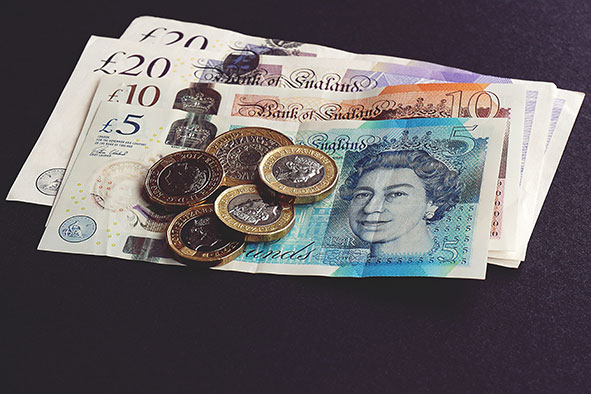Bankruptcy in family cases
Posted 11th June 2021
If you file for bankruptcy, it could affect your spouse in various ways. Keshini Rajendra from Heald family law offers advice on the complex rules relating to bankruptcy.
If your partner is declared bankrupt, you need to know what will happen to any joint debts you have with them. You may also find that your home and belongings of value are affected.
What happens to joint debts if your partner is bankrupt
If your partner is made bankrupt, they’ll no longer be liable for any debts that you have jointly with them. However, you will still be liable for the full amounts.
Your creditors could pursue you for payment of the full amount of any joint debts you have with your bankrupt partner. This is because when you take out a joint credit agreement, you both agree to be responsible for the full amount of the debt. This is called ‘joint and several liability’.
Check if you’re responsible for paying the debt
If your partner took out joint debts without your knowledge, you may be able to dispute your liability for these.
However, you’ll need to prove that you didn’t sign the credit agreement.
If you signed the credit agreement, you can still check if there’s another reason you’re not responsible for the debt. For example, if it has been six years or more since you made a payment or were in contact with the creditor; if you were pressurised into signing the agreement or the terms were not clear; if the creditor did not do the proper checks to make sure you could afford the repayments when the agreement was signed.
Your belongings
If your partner is declared bankrupt, you’ll generally be able to keep your own assets. These include things like your wages or salary from your job, your own savings, goods that are owned entirely by you, and any property that you own by yourself.
However, some restrictions may apply:
If you own your home
Even if your partner’s name isn’t on the mortgage, you might lose your home if your partner has a ‘beneficial interest’ in it. For example, they might have a beneficial interest if they’ve helped pay for the mortgage or improvements to your home.
You might still be able to delay or stop your home being sold. The official receiver or trustee won’t usually have a claim on your home. You’d normally be classed as the sole owner if you hold the legal title to the property, and if you can show your partner wouldn’t be entitled to any of the proceeds if the house was sold.
If your partner owns the home or if you own it jointly
You may lose the property. However, there may be things you can do to delay or stop this from happening, depending on how much interest your partner has in the home. If it’s less than £1000 and doesn’t increase beyond £1000 within 3 years of the date of bankruptcy, the trustee can’t sell your home.
Delaying the sale
The bankruptcy trustee has to apply to the court for permission if they want to sell your home. As the partner of the bankrupt person who is living in the home, you can request for the sale to be delayed for up to 12 months from the date of the bankruptcy order. If the court grants this delay, this will give you time to find suitable alternative living arrangements.
If the trustee applies to the court and you get the sale delayed, you must find somewhere else to live within the twelve months. If you don’t, the court wouldn’t count this as a reason not to sell the home, so you could end up with nowhere to live.
Stopping the sale
You may have some options for stopping the sale of your home altogether.
The court may decide that there are some exceptional circumstances which mean you can keep your home or at least delay its sale. These might include having a disabled child where the house has been adapted for their needs, or if you’re over 70.
If you think this might apply to you, you should ask your partner to speak to the bankruptcy trustee about this. You may need to get advice about whether your circumstances are exceptional.
You can stop your home from being sold if you buy your partner’s share of it. This share is called their beneficial interest. It is different to the legal title to the property, which is held by whoever owns it.
If you buy your partner’s share from the trustee, this should be for the market value, minus the costs of the sale if the home was to be sold.
It’s important to remember that your partner can’t just sign their share of your home over to you to avoid it being sold. This is a bankruptcy offence. If the official receiver finds out you’ve done this, your partner could have a bankruptcy restrictions order made against them, be fined or even sent to prison.
If you can’t afford to buy your partner’s share of the home, you might be able to find someone else who’s willing to do so, such as a family member, who’d then let you carry on living there. You and your partner should get legal advice about the implications before doing this.
Jointly owned goods
If you own goods jointly with your bankrupt partner, the bankruptcy trustee can ask you to buy your partner’s share. This has to be at their true value. If it’s not possible for you to do this, the trustee may get a court order to sell the property.
Gifts from your partner
Your partner isn’t allowed to give you items of value or sell them to you at less than their value in order to avoid them being taken away as part of the bankruptcy estate.
The bankruptcy trustee will look at any gifts your bankrupt partner has given you or things you have bought from them.
The trustee usually checks what your partner gave or sold to you over the last 5 years.
They can check things that happened over 5 years ago if they think your partner has ‘defrauded creditors’. This means they think your partner has deliberately sold things or given them away so they couldn’t be used to pay their debts.
As you can see things can get complicated when working out if and how you will be affected. If you are concerned about this please speak to one of our family team.
 Keshini Rajendra and the Heald Family Department deal with separations and divorces with kindness and good sense.
Keshini Rajendra and the Heald Family Department deal with separations and divorces with kindness and good sense.

Artemis House, 4 Bramley Road, Milton Keynes MK1 1PT
